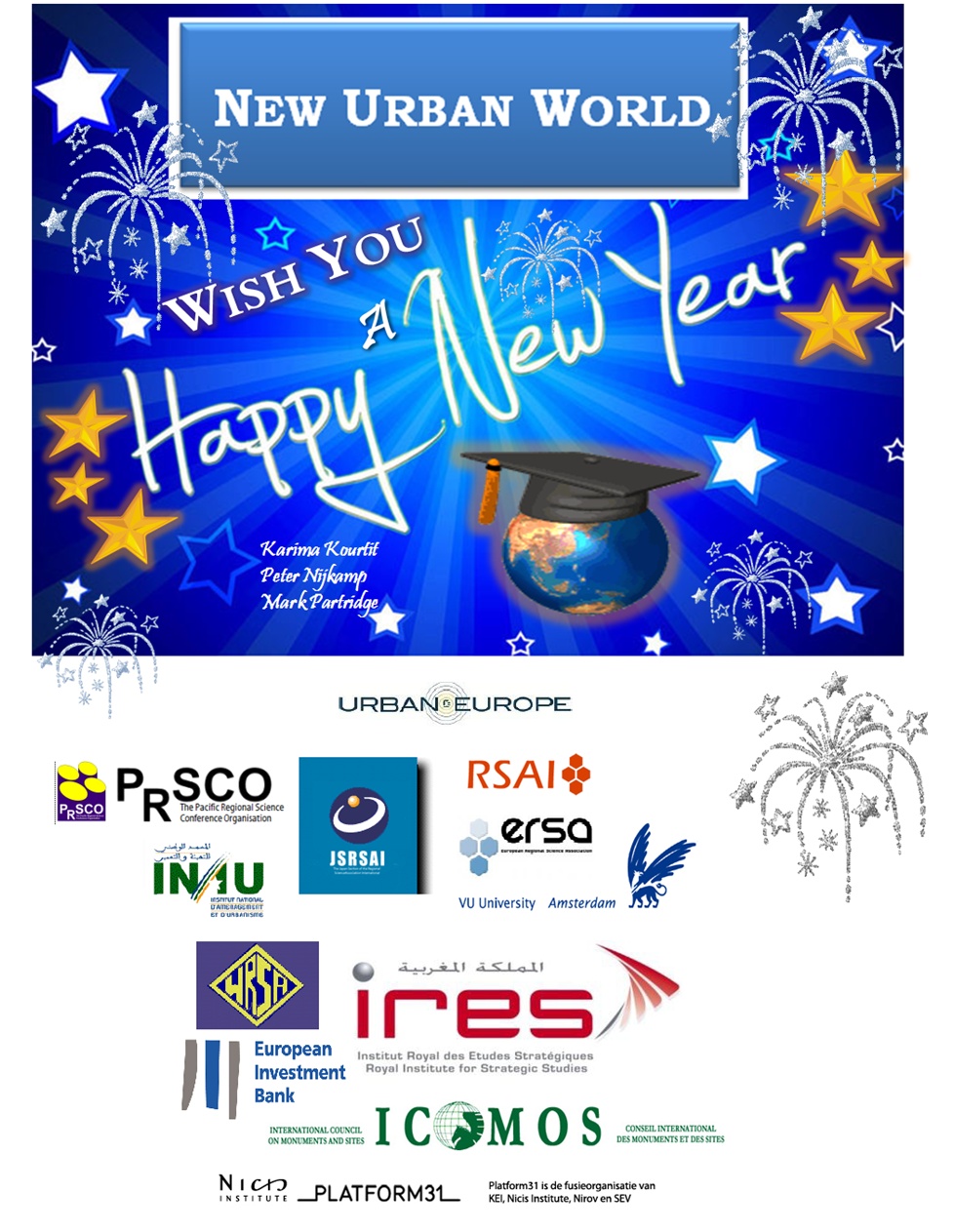RSAI Worldwide
Elisabete Martins
Migration Studies, a brand new journal dedicated to advancing our understanding of human migration in all its manifestations, is now welcoming article submissions.
Migration Studies, a brand new journal dedicated to advancing our understanding of human migration in all its manifestations, is now welcoming article submissions.
If your work is methodological, comparative or theoretical in scope and likely to make a difference in the field, submit it now!
Click here for more information:
http://www.oxfordjournals.org/our_journals/migration/migration_studies_launch.html
Roberta Capello, Doctor Honoris Causa from the University of Vest
We have great pleasure in informing you that Roberta Capello has received a doctorate honoris causa from the University of Vest in Timisoara on Monday, 29 October 2012.
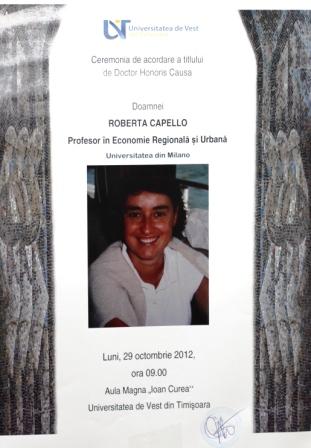
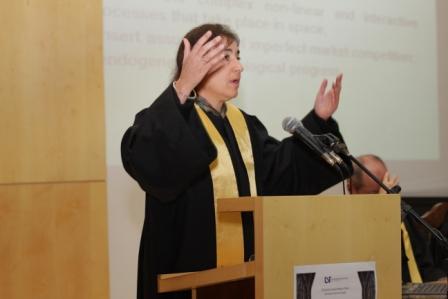
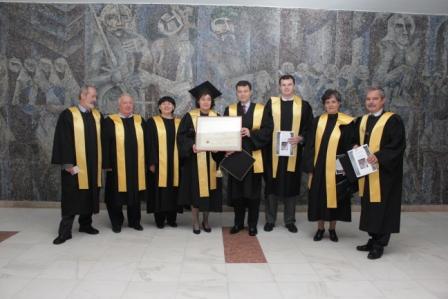
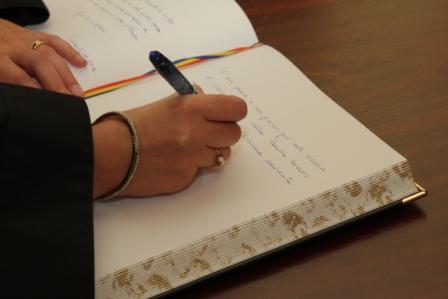
Japan RSAI Honors Professor David E. Boyce for his Transportation Research
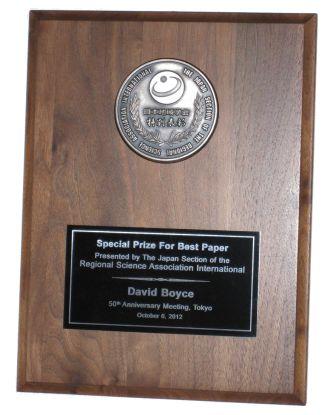 Professor Boyce was honored with a special award on the 50th anniversary of the Japan Section of the RSAI for his paper, "Predicting Road Traffic Route Flows Uniquely for Urban Transportation Planning, " published in the Studies in Regional Science, vol.42, no.1, The 50th Anniversary Special Issue.
Professor Boyce was honored with a special award on the 50th anniversary of the Japan Section of the RSAI for his paper, "Predicting Road Traffic Route Flows Uniquely for Urban Transportation Planning, " published in the Studies in Regional Science, vol.42, no.1, The 50th Anniversary Special Issue.
Dr. David Boyce is an expert of transportation planning. He has been solong time engaged in practical urban transportation planning in large urbanareas including Chicago in US as well as he has actively participated ininternational scholarly meetings of regional science, transportation planning,urban and regional planning, and so on.
The traffic assignment model, which was developed by him and his heirsin the field of Transportation Engineering, had a great affect on practice andtheory in the field of urban transportation planning in Japan in 1970’s. Themethodology was based on stochastic probability theory. In this sense, at thebeginning it was taken as extraneous one from the view point of economistsbecause their methodology is, on the other hand, largely dependent on microdeterministic behavioral approach.
This paper has successfully improved traditional traffic route assignmentmethodology through introduction of concept of entropy and potentialfunction into the traditional route assignment model, and has provided arobust theoretical basis for the developed methodology by showing marginalconditions for equilibrium traffic flows at all links. It is more consistent withmicro behavioral approach traditionally adopted by the economists.
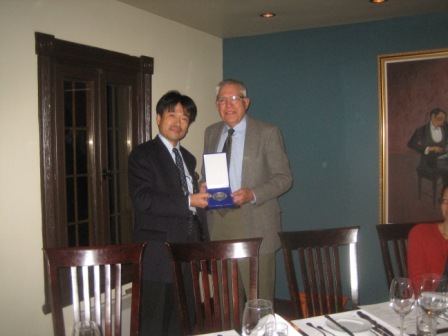
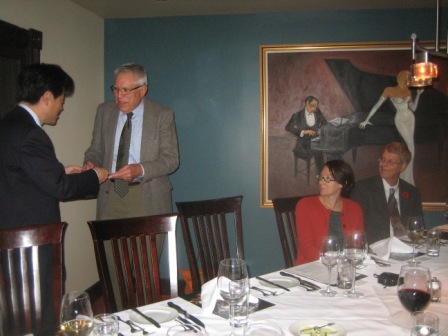
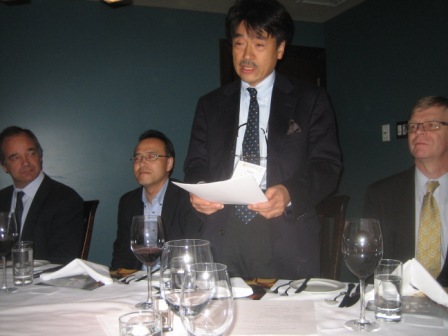
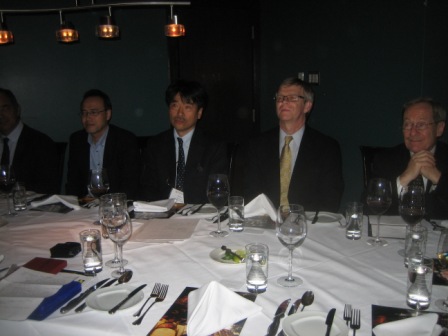
RSAI Newsletter November 2012 is now online!
Dear all,
The new RSAI Newsletter November 2012 can now be found under
http://www.regionalscience.org/Publications/RSAI-Newsletters/
Portuguese Review of Regional Studies (RPER) in Scopus
Dear colleagues,
It is an enormous pleasure to inform you that RPER has been accepted for indexation in Scopus. This is an important step in RPER’s life because it means the strengthening of our international acknowledge, although we are proud to claim that we are as well a Portuguese journal. Please, spread this good new as widely as possible, among your collaborators and research team. Although the RPER main scope is the Portuguese regional reality, we are keen to publish other contributions whenever they are important to international regional science.
Kind regards,
Best Wishes for a Merry Christmas and a Happy New Year from RSAI

Not a crystal-glazer but a scientist
The top professor at VU University Amsterdam never stops studying.
Always curious about things he doesn't understand, Peter Nijkamp is continually taking up new research topics - which often develop into flourishing fields of science. And when he has mastered them, the leading economist turns his gaze in yet another direction.
Peter Nijkamp (born in 1946) would like to be a student again. Law, maybe, biology, or history. And yet, as the first university professor at VU University Amsterdam, he seems to be right at the other end of the scale. This spatial economist is at the very peak of the pyramid. He has more freedom than other professors, more research funding and no administrative or teaching obligations.
In fact, this set-up does allow Peter Nijkamp to remain something of a student. One who has always worked hard because everything was so interesting, and now has a bit more free time to devote to the topics that really fascinate him. Not a bad position for someone with the wide range of interests he has. Thanks to his reputation, people keep on turning up with exciting new jobs. "You'd be astonished at the vast array of things that get presented to me every day," he says.
"Fortunately, I have no trouble switching from one topic to another. I'm a real workaholic, but my interests cover a wide field of science and policy, and I couldn't be happier in my work." He doesn't need much sleep, is often the first to turn up in the morning and finds it difficult to tear himself away in the evening even after everyone else is long gone.
Read full interview with Peter Nijkamp
( http://www.vu.nl/en/Images/Engels%20interview%20Nijkamp_tcm12-310080.pdf)
History of the Japan Section written by Professor Kohno and Professor Kurashimo
New URL of the Japan Section of the RSAI
New URL of the Japan Section of the RSAI
About Us
The Regional Science Association International (RSAI), founded in 1954, is an international community of scholars interested in the regional impacts of national or global processes of economic and social change.

